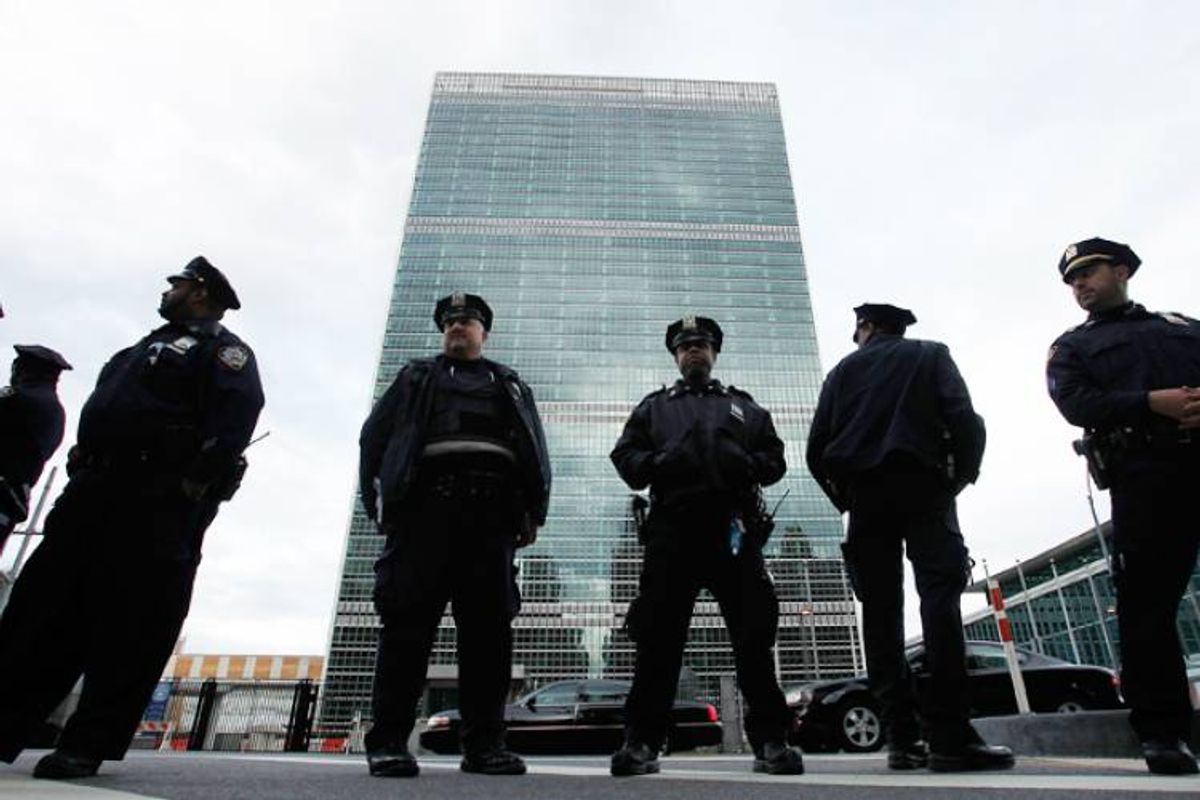When federal Judge Shira Scheindlin ruled earlier this year that the NYPD's stop-and-frisk practices unconstitutionally and discriminatorily targeted black and brown young men in New York, anti-racist advocates and community groups cheered: Finally, the judiciary was recognizing addressing what had long been understood as a cruel fact of New York life for millions of people.
On Thursday, however, a federal appeals court sided with the city and its police department in blocking Scheindlin's ruling and recommended changes to police policy. In a considerable blow to anti-stop-and-frisk efforts, the 2nd Circuit court yanked Scheidnlin from the case on the grounds of ostensible impartiality. As the New York Times noted, this week's ruling "effectively puts off a battery of changes that Judge Scheindlin, of Federal District Court in Manhattan, had ordered for the police department. It postpones the operations of the monitor who was asked to oversee reforms of the stop-and-frisk practices, which Judge Scheindlin had said violated the constitutional rights of minorities."
The landmark Floyd vs. City of New York trial this year brought to light a host of troubling details about NYPD operations. A series of officers stepped forward to give evidence that the police department employed a quota system -- which is illegal -- that drove up stop-and-frisk numbers as cops sought easy arrests and summonses, stopping young people without suitable reason for suspicion in poor, minority neighborhoods.
While the 2nd Circuit's decision this week appears a setback in the fight against discriminatory policing, the political will to end stop-and-frisk in its current form remains strong. “We have to end the overuse of stop-and-frisk, and any delay only means a continued and unnecessary rift between our police and the people they protect,” said Bill de Blasio, the Democratic nominee for New York mayor, who looks set to comfortably beat his Republic opponent. Bloomberg's stop-and-frisk-friendly reign is nearing its end. Meanwhile street mobilizations from Brooklyn to the Bronx have regularly this year drawn thousands and thousands of participants expressing their rage at racist policing. Anger at stop-and-frisk is not set to fizzle with one disappointing court ruling.
There is, however, something significant and troubling in the 2nd Circuit Court's decision that Judge Scheindlin appeared to act with bias. The appeals court ruling makes some mockery of judicial impartiality. Statistics, it's true, can only go so far, but the stop-and-frisk numbers tell a story about as subtle as a police baton to the face -- a story of discrimination and wrongful stops. As of March this year, the NYPD had carried out over 5 million stops under Bloomberg's mayorship. More than 86 percent of these stops were of black or Latino individuals. Police data also revealed that 88 percent of the stops did not result in an arrest or summons (and of course an even smaller proportion ever leads to a conviction).
Nearly 90 percent of stops are of entirely innocent black and brown people -- those are the numbers, those are the facts. In ruling along those lines, however, Scheindlin “ran afoul” of the judiciary’s code of conduct by compromising the “appearance of impartiality surrounding this litigation.” It seems to me and many thousands of others, however, that to deem stop-and-frisk anything other than discriminatory and unconstitutional would truly be to compromise not just the "appearance" but the very sense of impartiality.



Shares